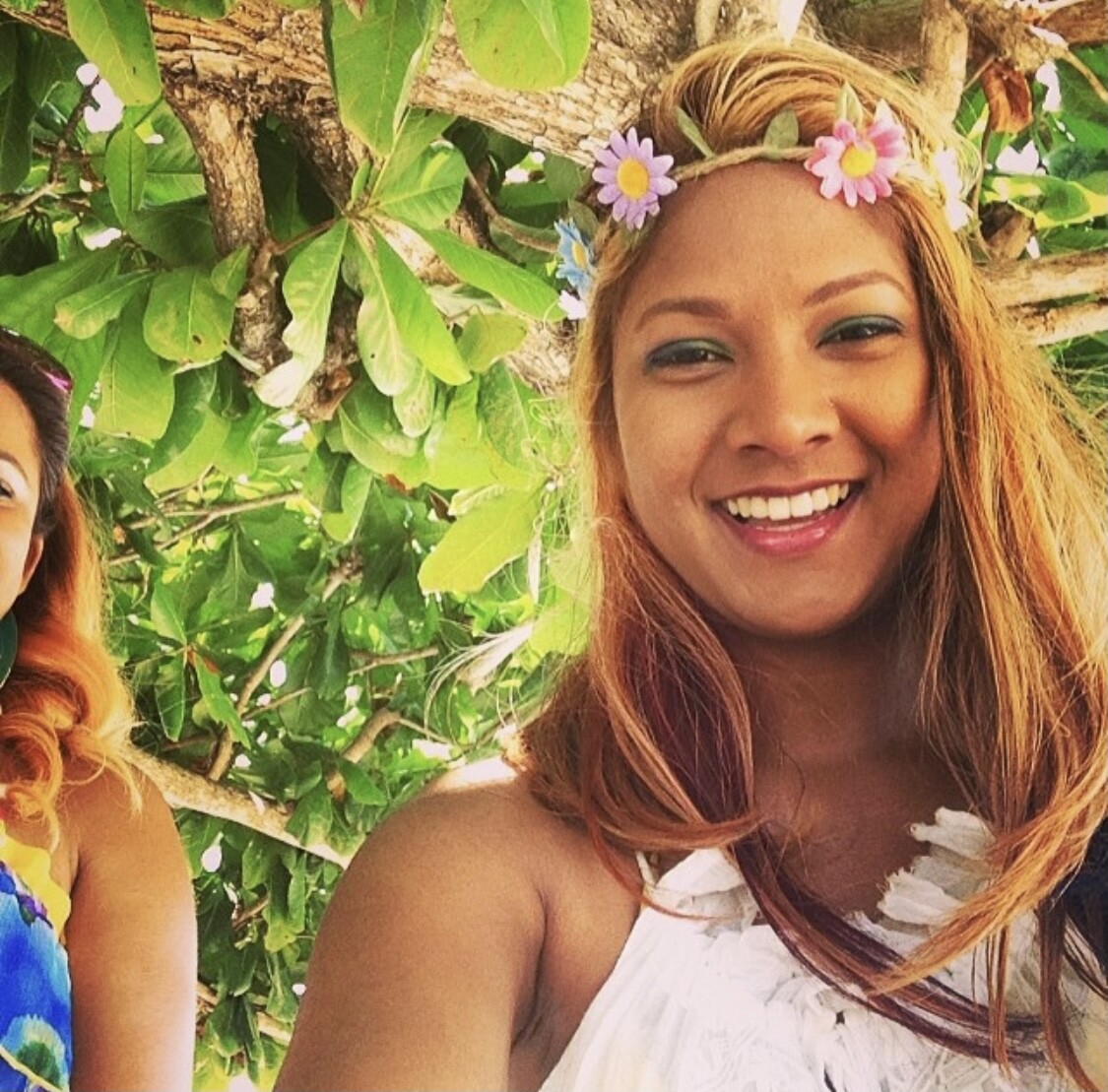
It’s amazing what you can learn about someone when you give them an opportunity to talk about their past. This observation is especially true of immigrants, whose stories transcend borders, oceans, and cultural homogeneity. As it relates to the US, its historical and present-day status as a hot spot for immigrants is a well-established phenomenon. Among the biggest drivers of immigration to the US today are religious and political freedom, economic opportunity, and a desire to be closer to family. Whether you like to think of the US as a unicultural melting pot or a multicultural salad bowl, the fact remains that there are nearly as many immigrant stories as there are people.
June is Caribbean-American Heritage Month. In 2006, Congress and the White House adopted this observance in order to “celebrat[e] the rich Caribbean heritage and the many ways in which Caribbean Americans have helped shape this Nation” (source). This week, I visited Brittney Judhan, a longtime family friend and neighbor, to learn about her colorful experiences as a first-generation immigrant to the US. Brittney grew up in Trinidad & Tobago before moving to Columbus, Ohio, at age 8. After graduating high school, Brittney worked for the family-owned business—Eternal Salon & Spa—as a cosmetologist, hair stylist and business manager for more than a decade.
I hope you enjoy the following account of a fascinating 90-minute interview conducted in-person. You can catch Brittney on Instagram @my_sunshine
Tell the people a little bit about yourself.
My name is Brittney. I’m 29 years old. I am the second oldest of three siblings. I have an older brother and a younger sister. I love the outdoors and spending time with family. I’m a semi-retired hair stylist, and I’m the best auntie in the world.
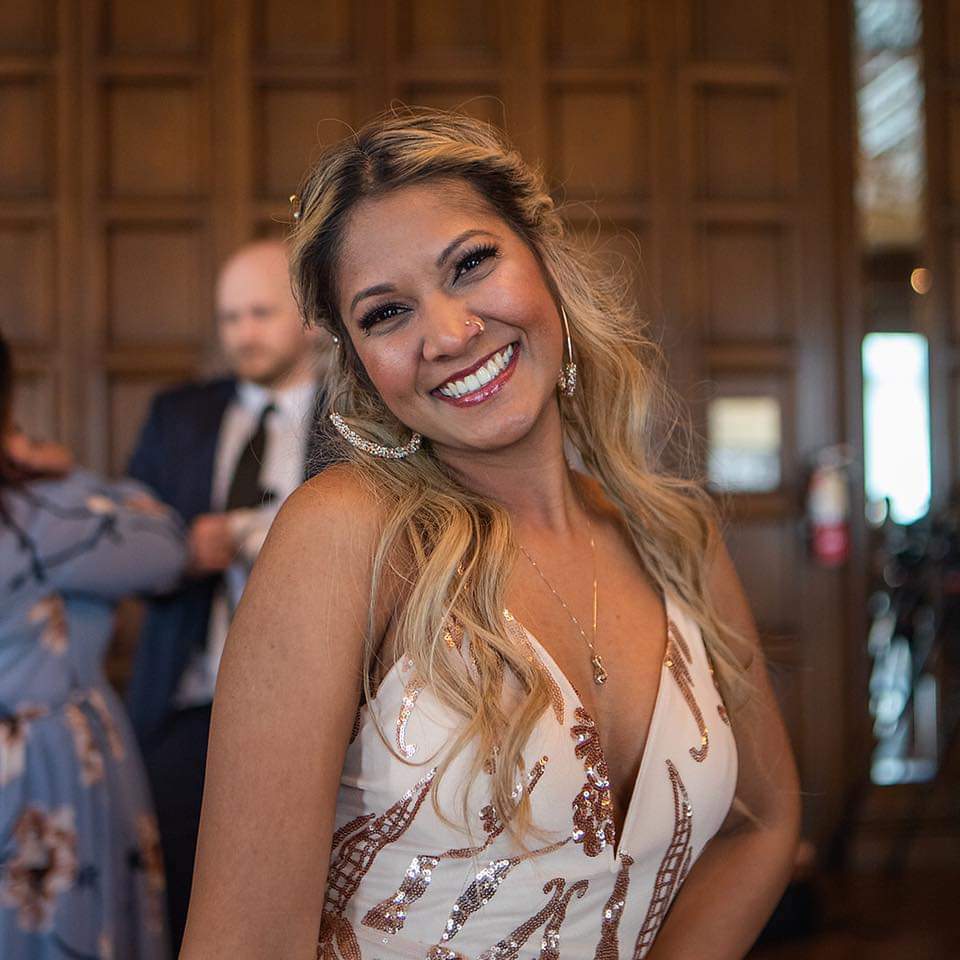
My family is from Trinidad, but I was born in New Jersey. My mom traveled to the US before I was born so that I would have American citizenship, but I was raised in Trinidad. When I was 8 years old, my family moved to Columbus, Ohio, which is where I currently live.
What was it like growing up in the Caribbean?
It was perfect. It was magical. It was great weather all the time. Sunshine, hanging out with friends and family. The food was amazing. I felt like we were always around family and always spending time outdoors. Even the school building was designed in a way that breezes were always coming in from outside. There was also a pool at the house that we would swim in.
I had one best friend, Kelcie. On the weekend, I would always go to Kelcie’s house, or she would come to my house. A lot of my memories from Trinidad were with Kelcie and her family.
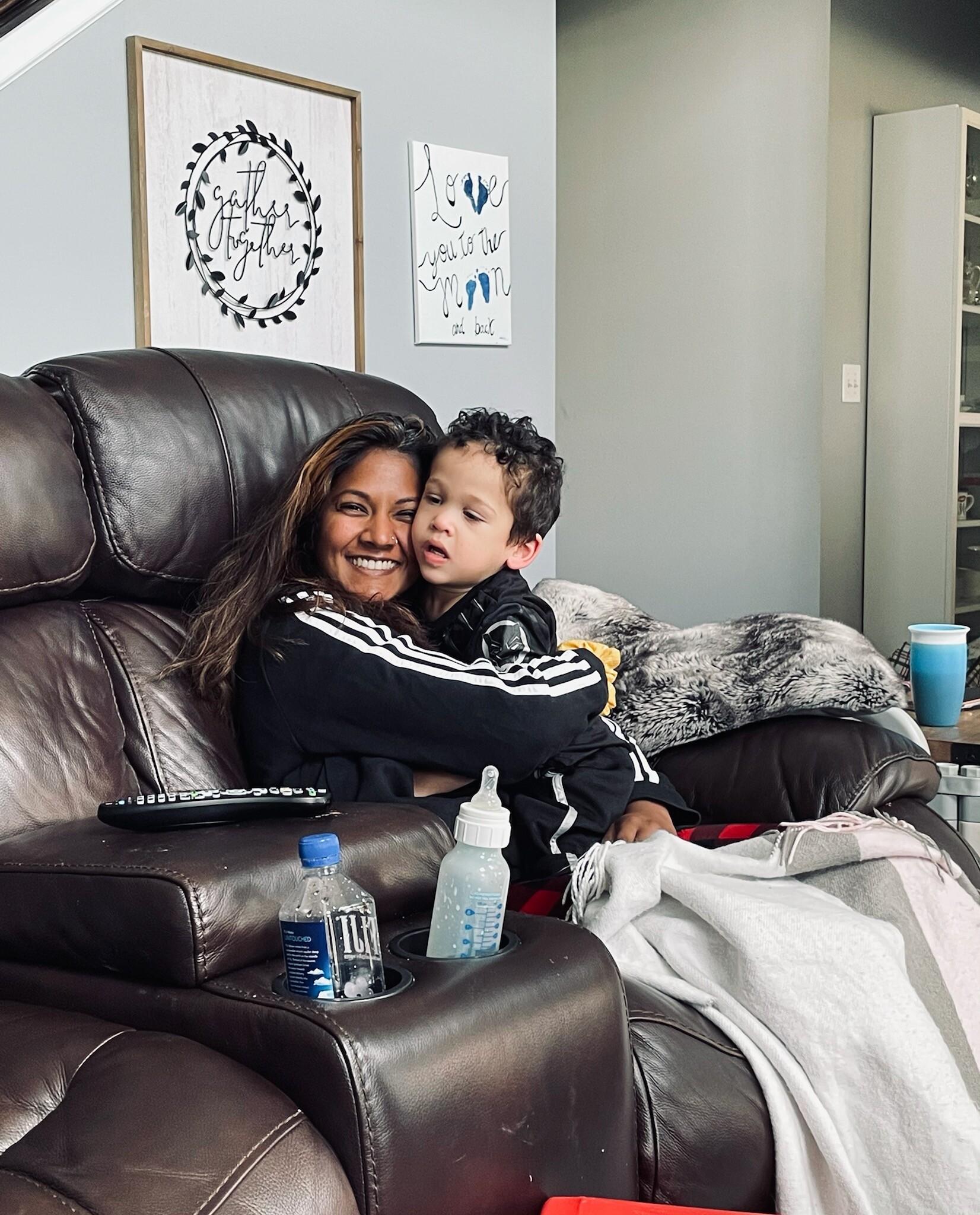
Was your family indigenous to Trinidad or did they arrive there as immigrants?
My dad’s side of the family is Indian. I don’t know the whole story, but I know there were Indian indentured laborers who came to Trinidad in the 19th century to work on sugar plantations. There’s a holiday in Trinidad, Indian Arrival Day, that some people celebrate to commemorate the arrival of these workers. As far as my mom’s side of the family, a volcanic eruption took place on the nearby Caribbean island of Martinique, and so her grandfather and his family fled to Trinidad.
We literally have every kind of people in Trinidad. There are Indians. There are Muslims. There are people of African origin. And they all tend to hang out together in their own communities.
You moved to the US when you were 8 years old. What was that transition like?
I remember I could not say Ohio for some reason. I thought we were moving to Hawaii. I literally told everybody I was moving to Hawaii. We have family in New Jersey, so we flew into New Jersey first, and we stayed with family for a week or two. We bought a van, and then drove from New Jersey to Ohio.
My parents picked Ohio because of World Harvest Church. They knew that this was the central location they wanted to be in. My dad had enrolled in the Bible college and he liked the fact that they had a Christian academy for the kids. When we first got to Ohio, we stayed at a motel—Econo Lodge—while we were looking for a house. It must have been for no more than a few months, but as a kid it felt like we were there for a very long time.
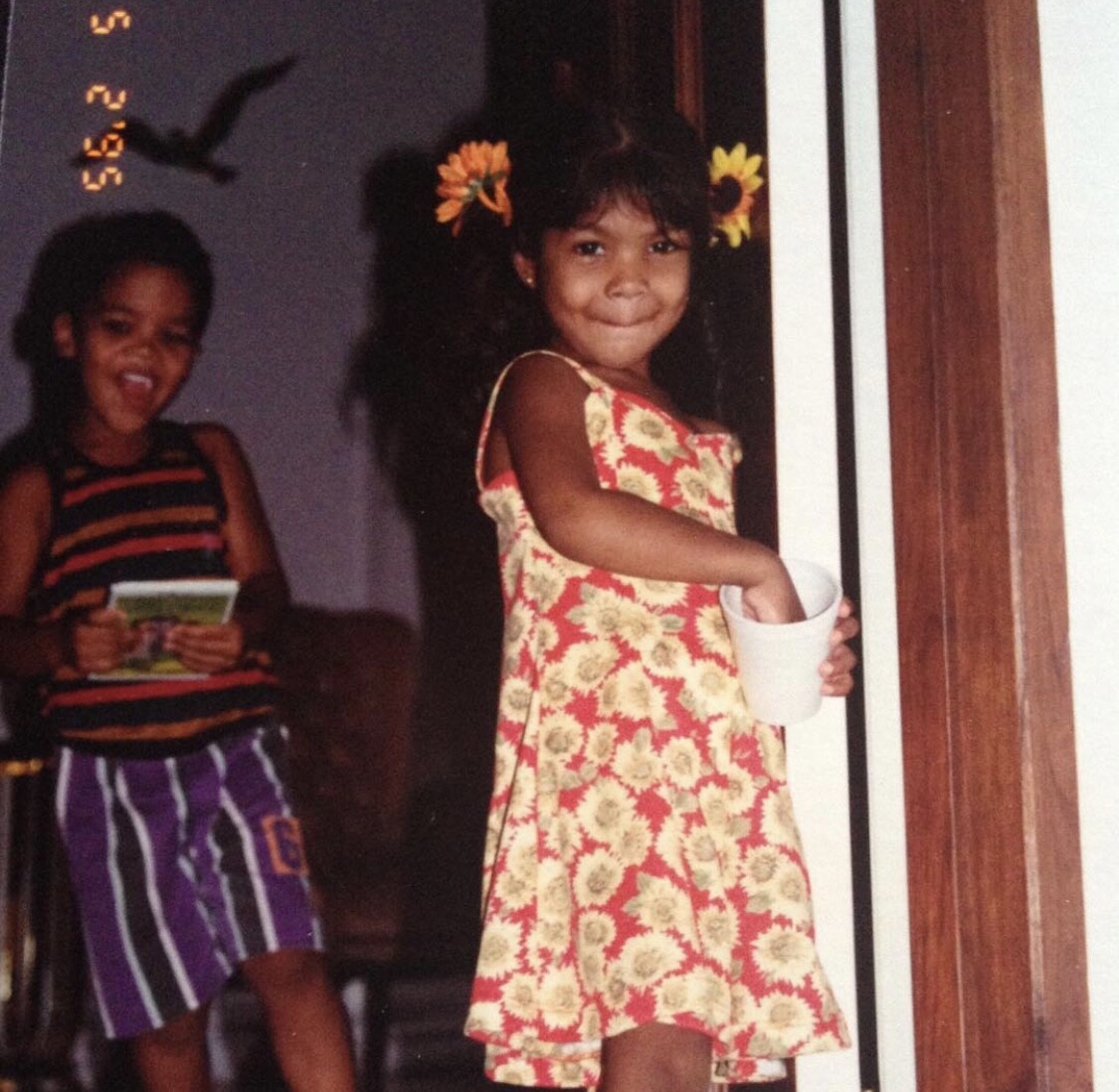
This whole time, I’m thinking, “We’re coming to America. Things are bigger and better than what is on the small island of Trinidad.” In Ohio, I came to a hard reality that a) we moved there in the dead of winter, so it was freezing cold. And b) we were living in a motel. I went from living in a mansion in Trinidad to a motel in the US.
I think I got my ideas about the US from TV. Watching TV, I got the impression that everything in America is bigger and better. When we were living in Trinidad, my dad would also go on business trips to the US, and he would come back with these amazing gifts from America. He would buy me and my sister the biggest teddy bears, and I would think, “This teddy bear came from America, it’s so big.”
Back in Ohio, my parents ended up buying this small house. The reason they bought it was because it was close to the church. My parents promised us we would only be living in America for three years, and then we would go back to Trinidad. And so I thought “I can handle this, it’s only three years.” My siblings and I would often joke that we moved from a mansion to a motel to a dollhouse.
After three years went by, my parents decided that we were going to stay in America until my siblings and I graduated high school. Eventually, we retired the small doll house and purchased a bigger house in Pickerington, which is when we became your neighbor. At that point, I thought, “We have space again, so living in America isn’t that bad.” I had my own room for the first time, which was amazing.
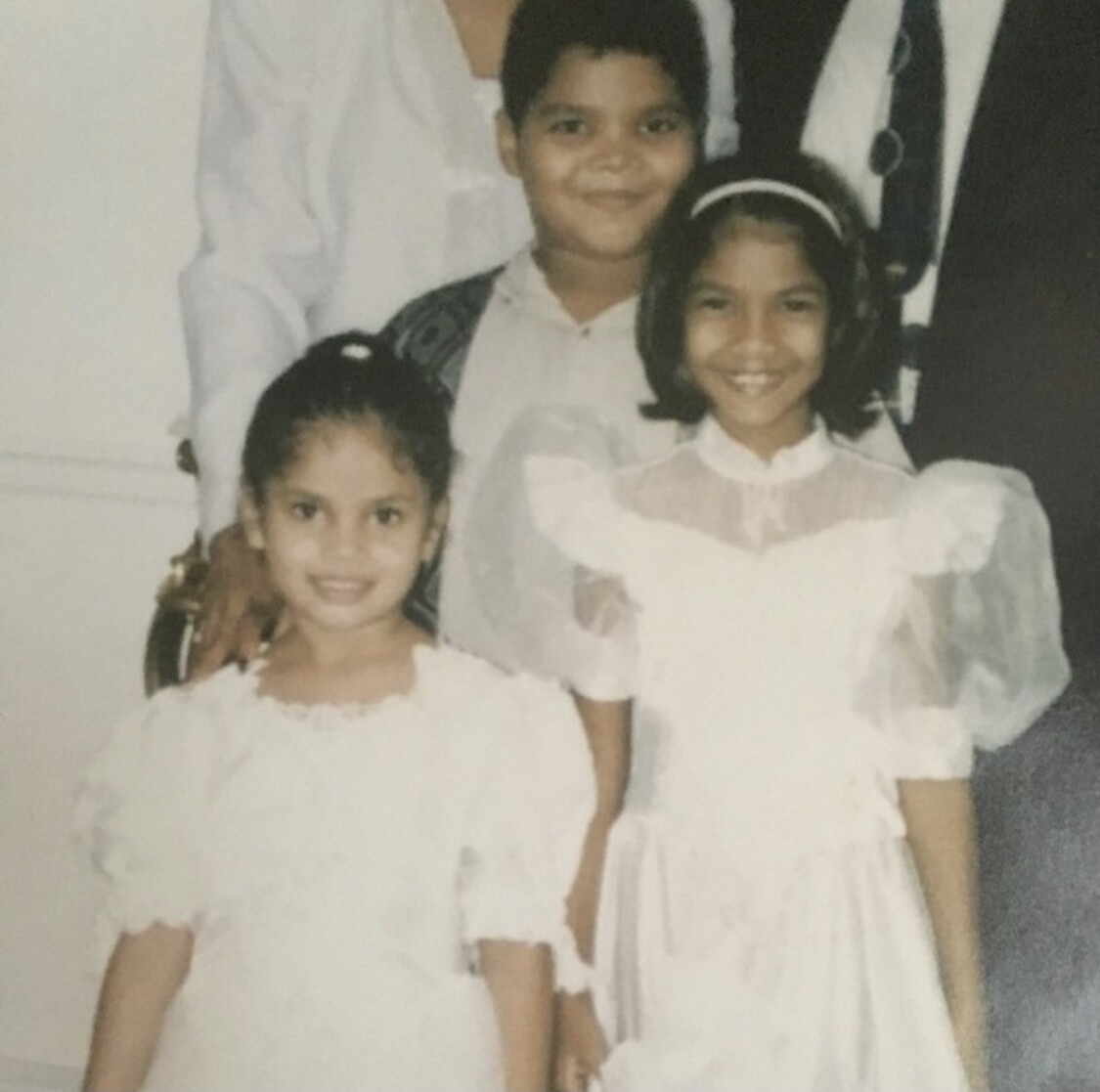
You recently got a DNA test—were there any bombshell revelations?
I am predominantly Asian– 51% Southern Indian and 39% Northern Indian. I knew I had some Indian in me, but I didn’t realize just how much. I thought I would have more African in me, but as it turns out, I am only 2 or 3% Western and Southern African (Togo, Nigeria, Benin). I am also like 1% Italian. My mom would always say that we have European in us, talk about how she’s half-European, and I always laughed at her. “Mom, you are not any type of European. Get out of here.”
When I got the results back, I was surprised we had any European at all. I thought I would have some kind of Spanish or Latin American roots because of how her side of the family looks. My dad looks Indian, but my mom does not.
What’s it like when you go back to visit?
It’s very weird to me, and a little bit sad because I wish I was more in touch with my Trinidad roots. I just feel a little out of place sometimes, especially because of the way I talk and not knowing my way around. But once I’m around family, I feel very happy. In Trinidad, they have a very strong accent, and I do not have an accent at all. After I speak, the locals treat me like a tourist. They don’t give me the hook-up because I’m an American. There is a lot of Trini slang that I understand, but I don’t feel comfortable using it because I don’t have the accent and I didn’t grow up there.
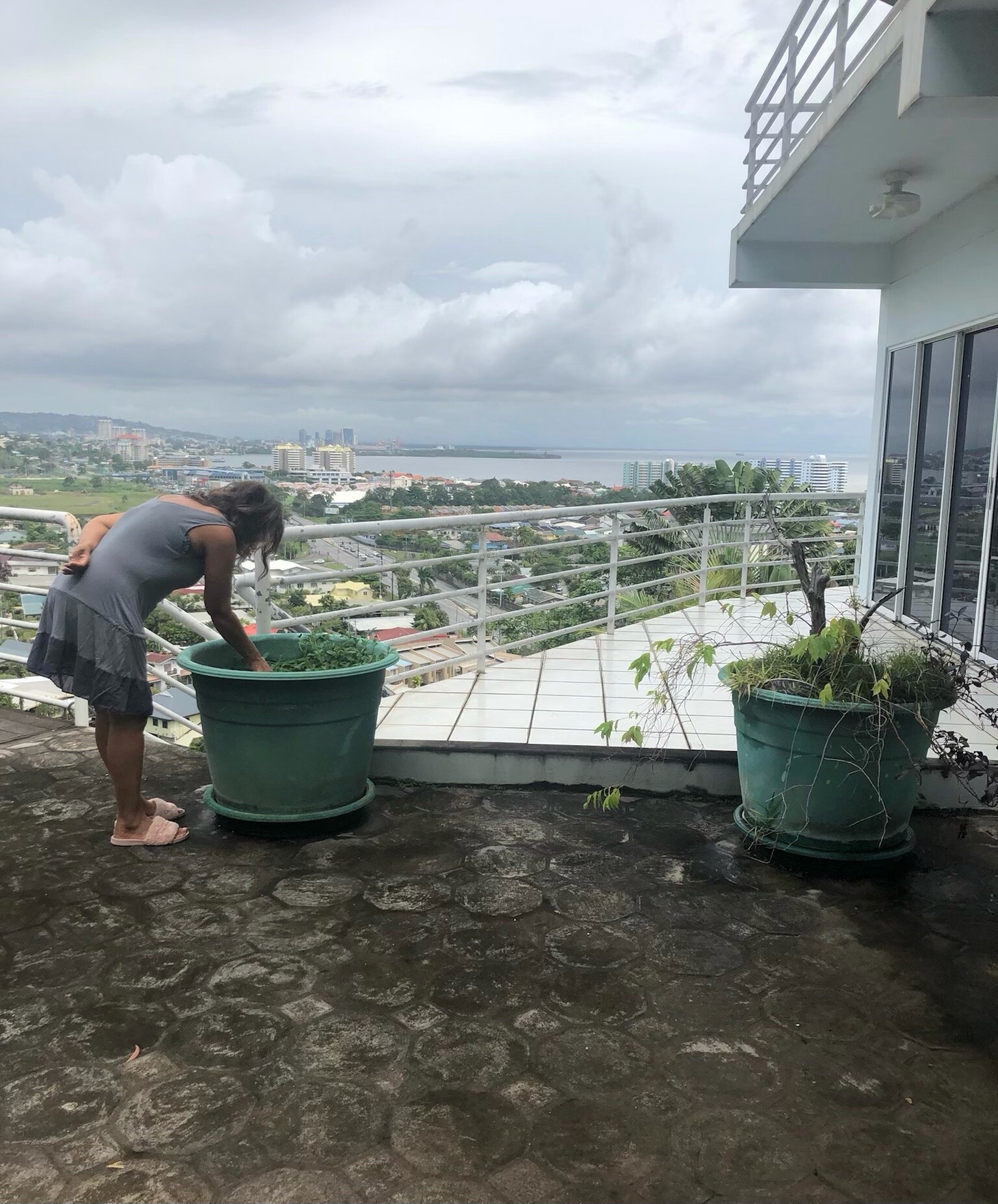
Our relatives still live in Trinidad, and we still have the same house we grew up in. Whenever we go back, it’s very nostalgic. I do remember when I first went back to the house, everything seemed smaller, but that’s because I was grown up. Now that I’m older and can buy my own plane ticket, I try to visit every two years for a few weeks.
What is one thing people don’t know about Trinidad?
Literally no one knows where its located. Trinidad is off the coast of Venezuela. It is the last Caribbean island. And the equator runs straight through it, so it’s hot all year round.
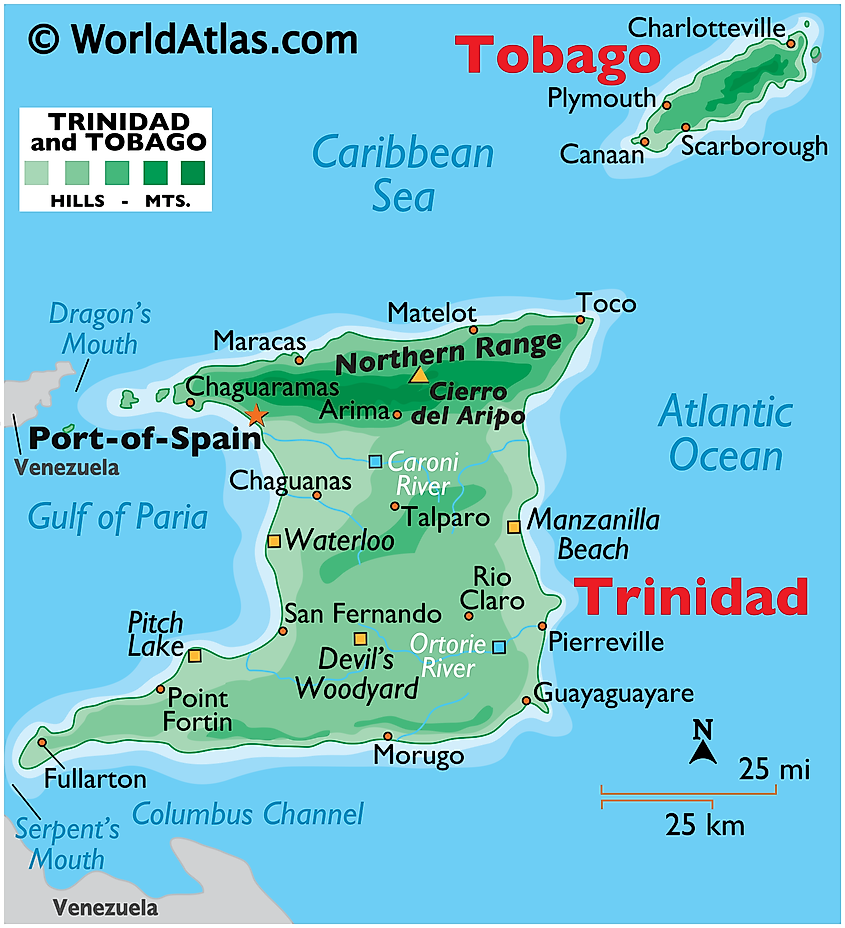
People also assume that Trinidad is really touristy because it’s an island. It isn’t. The most touristy time of the year is carnival, which lasts about a week. It’s like this big long party. Trinidad’s sister island, Tobago, is a much bigger tourist destination.
Your family is known for being really high energy. Is this more of a Judhan thing, or would you say Caribbean culture is a factor?
It’s definitely a Caribbean culture thing. I’m almost positive that Caribbean culture is just naturally loud. We are a very energetic people and a very passionate people, I would say. We just want to enjoy life. People in Trinidad either work too hard or play too hard–it’s always one or the other.
Your family has operated a salon in Pickerington, Ohio—Eternal Salon & Spa—for as long as I can remember. How did your family get involved in the beauty business?
It started with my paternal grandmother. I don’t know how she got started, but I know she had a hair salon and cosmetology school in Trinidad. That’s actually how my mom and dad met—my mom attended my grandma’s cosmetology school. My dad got involved in the hair industry because of my grandma and wanted to help her further the business. They created a hair product line, Eternal Products. By the way, the name of the salon was Suzan’s Unisex Salon, which is where I got my middle name.

When my parents decided to stay in the US, they did not have in mind that they were going to open a salon in Ohio. When I was a senior in high school, I told them I want to go to cosmetology school. My dad said, “I guess we’re starting a salon because you are not going to work for anyone else.”
My dad always instilled in us an entrepreneurial spirit. He wanted us to get the most benefit out of everything that we did. I graduated high school in 2009, and we started leasing space in a strip mall. I worked as a receptionist in the salon while I was finishing hair school, and I got my license in October of 2010.
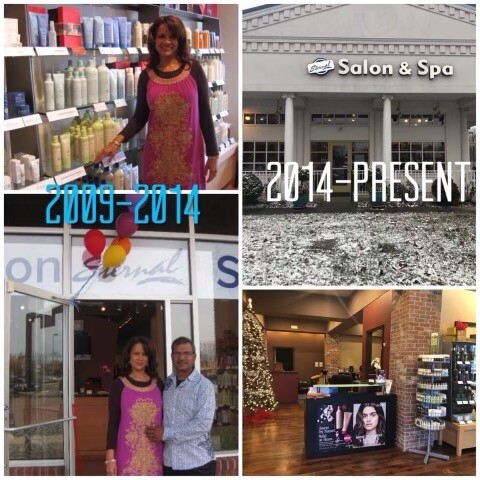
There are a lot of titles in the beauty industry–cosmetologist, esthetician, beautician, hair stylist, barber and so on. What do these different terms signify?
Cosmetologists are licensed in the general field of beauty. That includes hair, skin, and nails. Cosmetologists can do facials, waxing, manicures, pedicures; they can legally cut men and women’s hair and apply hair chemicals. Estheticians specialize in waxing and skin care. They can go into more depth than a general cosmetologist. Estheticians can apply chemical to the face, do extractions, and other more invasive therapies, but they don’t do hair or nails. Beautician is an older term for a hair stylist. If you want to be a hair stylist, you have to get a cosmetology license. There are also what we call nail technicians—people who do nails only but cannot do hair or skin. Barber is only cutting, and primarily for male clients.
What was it like to work for the family business for as long as you did, both as a cosmetologist and business manager?
I am first and foremost very grateful for the opportunity that my parents gave me, to be able to run a business successfully at a young age, and to fulfill my dreams that I’ve always wanted as a young child. However, it was very, very, very difficult and stressful. I was 17, 18, 19, when I was doing a lot of the managerial stuff that I didn’t necessarily go to school for. I learned from experience and asking questions, but getting thrown into it at a young age was very stressful and time-consuming.

I lived with my parents, as well. The business wasn’t like a switch that you could turn on and off. I worked long hours, and I would come home, and we would talk about it some more. Also, seeing what my parents gave me, I felt like I had something to live up to. They didn’t literally tell me, “Hey, you have to work hard,” but there was this untold expectation of doing well and not squandering it. This is probably why I overworked myself. Subconsciously not wanting to disappoint my parents, I worked all the time.
What led you to step away from the salon?
When I first decided to become a hair stylist, I always said “I’m going to work my butt off for 10 years. I’m going to put in as much work as possible. I’m going to do the long hours. After 10 years, I’m retiring, and maybe I will help run the salon, but no more clients.”
By 2020, at age 28, I was ready to retire. I knew that October would mark my 10-year anniversary, which is when I said that I would quit. However, my clientele at the time was really large. I didn’t feel comfortable leaving them just yet, and I was trying to find a way to make a smooth transition. When the pandemic happened, I thought it was the perfect time to step away, and that clients would be more understanding. I had also been losing my hair due to stress. I had developed alopecia. This had happened one other time when I was like 18 or 19 and had a lot of managerial and hair styling responsibilities. To sum it up, I knew I needed to cut back on the stress, and my 10-years was coming up.
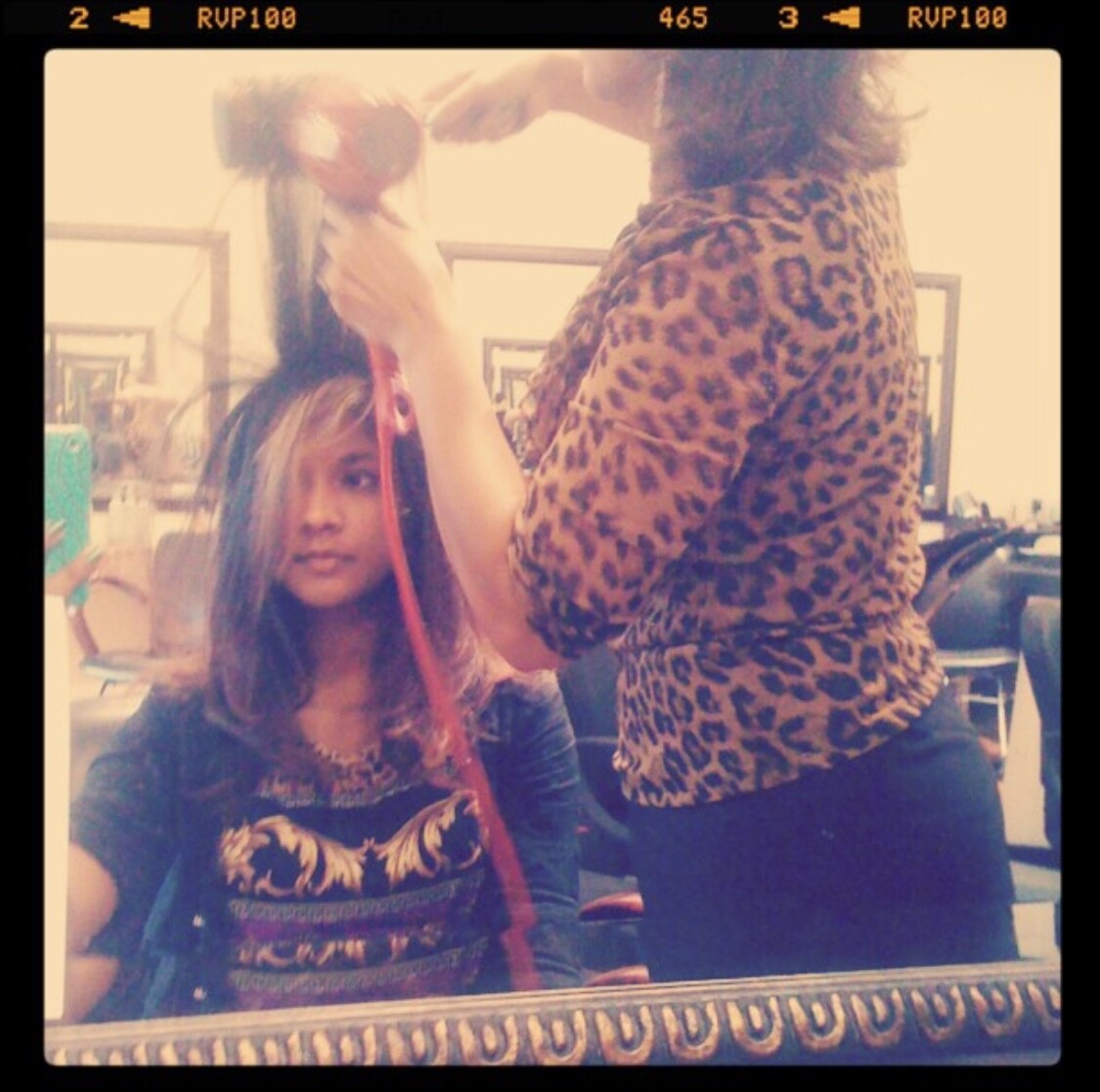
I still love doing hair. It is my passion. It’s what I believe I was called to do. I enjoy it thoroughly. I still do a couple clients on the side, and I also still do hair styling for special events, like weddings. I try to help a little bit with the management of the salon—the girls can text me questions for advice on clients—but I don’t physically go into the salon and deal with people face to face.
What is one thing people don’t know about you?
I feel like I’m very much an open book, I love to talk, and there’s almost nothing that people don’t know about me. One thing–if I say hi to you and don’t say your name, it’s because I don’t remember your name. I’m not good at remembering. If I know your name I always say “Hi, the person’s name.” For example, when I see you, I say, “Hi, Benny.”
Have you ever experienced culture shock?
I was oblivious to a lot of things when I was young, but I do remember I had a very heavy accent when I first came to the US, and people were constantly correcting the way I said things and the terminology I used.
Besides that, going to cosmetology school was the real culture shock. My background is very sheltered, conservative, and small. Everybody at my high school knew each other, and we all pretty much had the same morals and standards. So I went from being in that kind of environment to a very wide, liberal environment. There were other young girls, there were older people seeking to reinvent themselves, but nobody who shared my beliefs and background. People would tell crazy stories about parties and things that happened on the weekend.
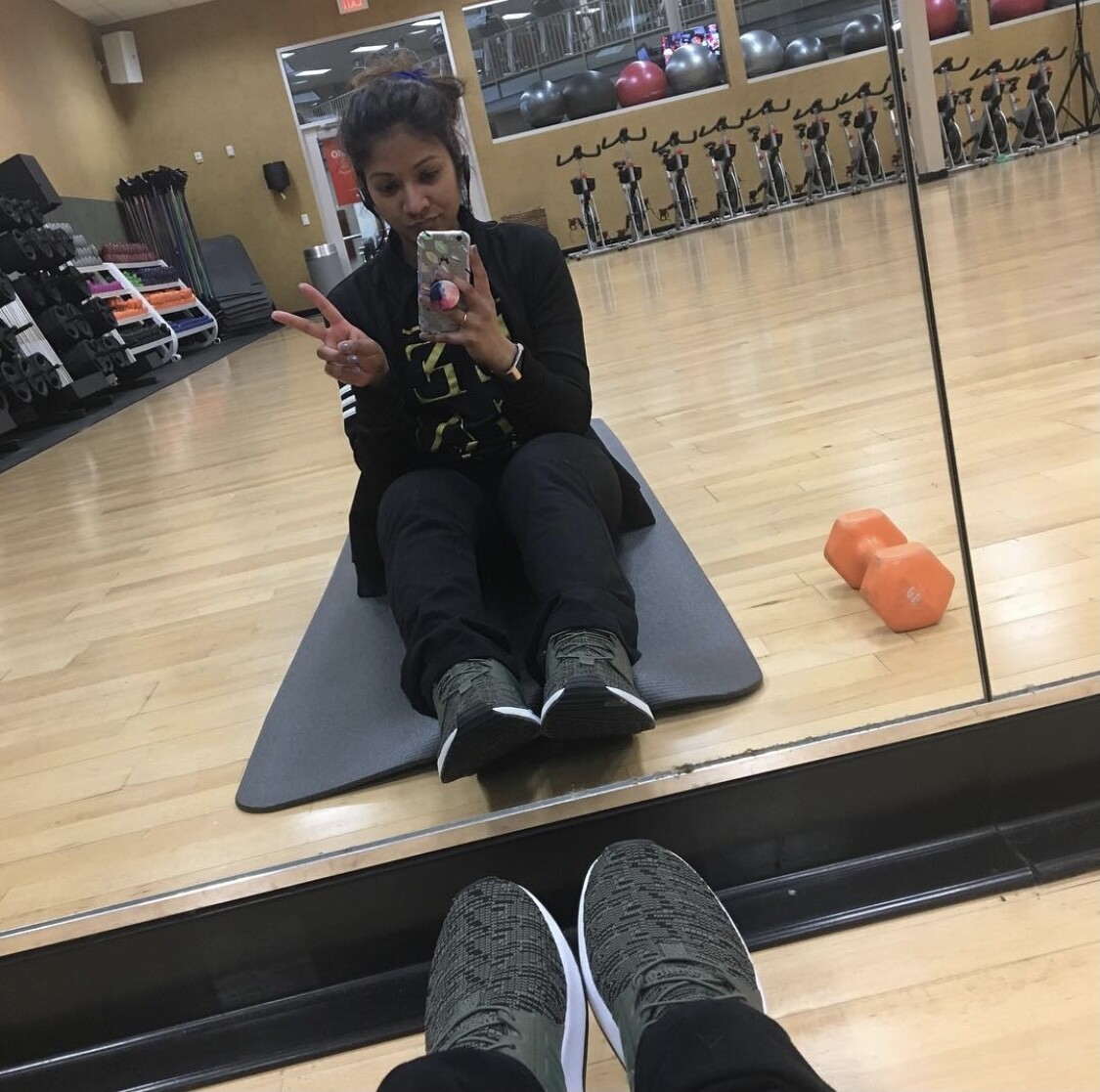
I remember girls didn’t initially like me in hair school. I was bubbly and happy, and they thought I was fake. But then later they got to know me, and they realized Brittney is that person. Brittney is bubbly and happy.
If you had to pick one destination to live the rest of your life, where would it be?
A hot tropical island. I don’t know which one specifically, but I would want it to be a hot tropical island. I love being warm. Sunshine makes me happy. And I would like to be close to the water, so I can go swimming on the beach anytime I want. I also feel like the people who live there have a more laid back, hakuna matata lifestyle.
What is your biggest regret?
I regret when I was working really hard in my 20s, I never made the time for vacations. I could have done vacations and still made enough money, but for some reason I didn’t realize it at the time.
What are some things you hope to do or achieve in the next 5-10 years?
I will say this is also a thing I’ve been struggling with lately. I feel like I want to achieve something or create something, but I don’t know what it is yet. Hopefully, within the next 5-10 years, I find something that inspires me because I don’t want to be involved with anything I’m not passionate about.
I am planning on getting married to my fiancé next April, and would like to start a family. Right now, I’m thinking I want maybe two kids, but that depends on how the pregnancy and delivery go, and what means we have available.
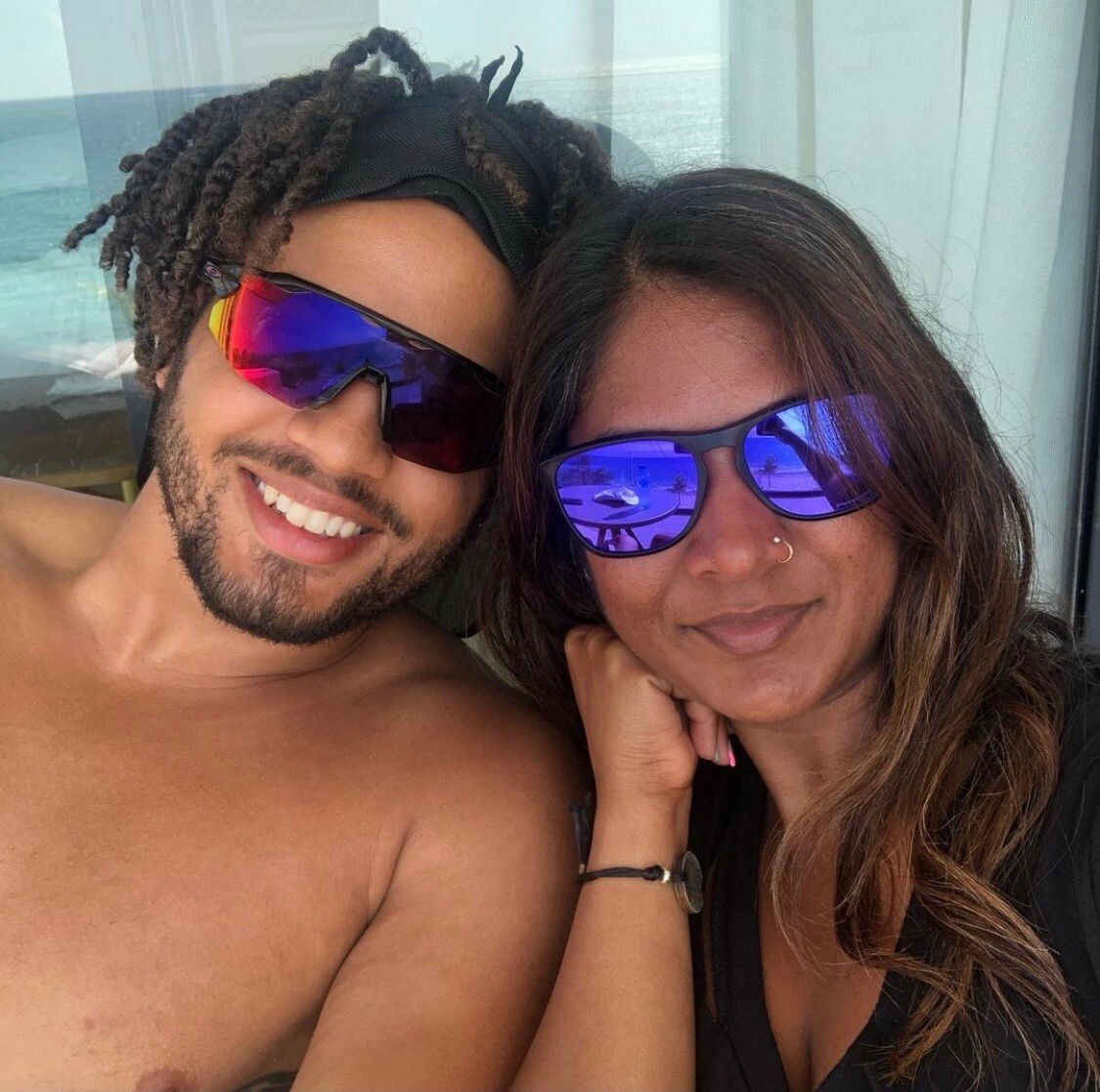
I want to visit South Africa. I want to visit tropical islands, like Hawaii and Fiji. I want to visit India. I’ve always wanted to visit India, but not as a tourist. I want to go to volunteer in some capacity.
I tend to live life as it comes. I’m not the best at setting goals because then I feel stress to make sure I achieve them. When opportunities come for something to happen, and it’s exciting to me, then I take action to make it happen.
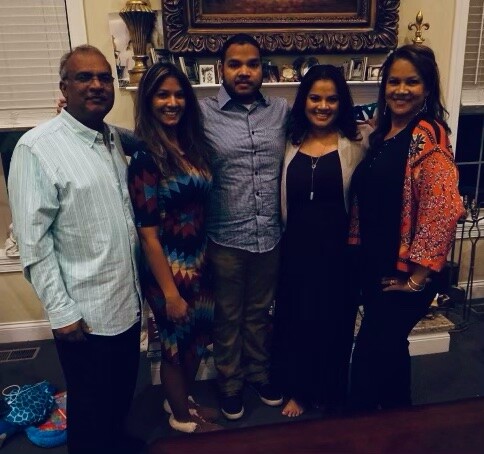
I’m going to ask you several questions in quick succession. You can limit your answers to no more than a few sentences.
What is the thing you are most proud of?
My car because I bought it on my own, paid in full. It’s a Nissan Rogue. This was back in 2016.
What is your favorite dish to cook?
Right now, it’s baked sweet potatoes with ground turkey and kale. The ground turkey and kale go on the skillet, with baked potatoes on the side.
What is your favorite dish to eat?
I don’t have a favorite dish specifically, but I love Mexican food.
What is your favorite holiday?
My birthday. Does that count? A few months ago, I turned 29. Since this was my last birthday in my 20s, I wanted it to feel fun and festive. We did a party at the park. My family and friends were there, and we played kickball. I really enjoyed it because it made me feel very childlike. I love that carefree, fun feeling.
Who is your favorite celebrity?
I don’t have one. I could care less about them… I lied! I love Celine Dion. And Adrienne Bailon-Houghton from The Cheetah Girls.
If you could go back in time and have dinner with one person, who would it be?
It would be my grandpa John, on my mother’s side. Grandpa John was the G.O.A.T. He was my first grandparent to pass away, when I was maybe 15 or 16. He was always so lively, and the way he lived life was really inspiring. He was also a great storyteller, and I think it would be cool to listen to grandpa John’s stories one more time.

